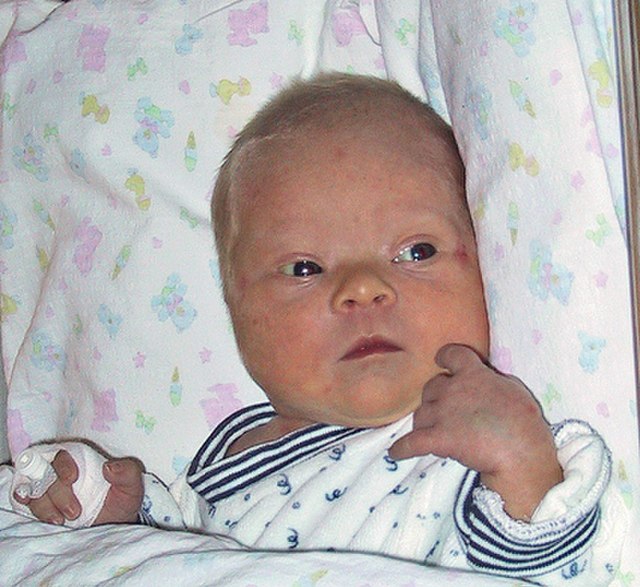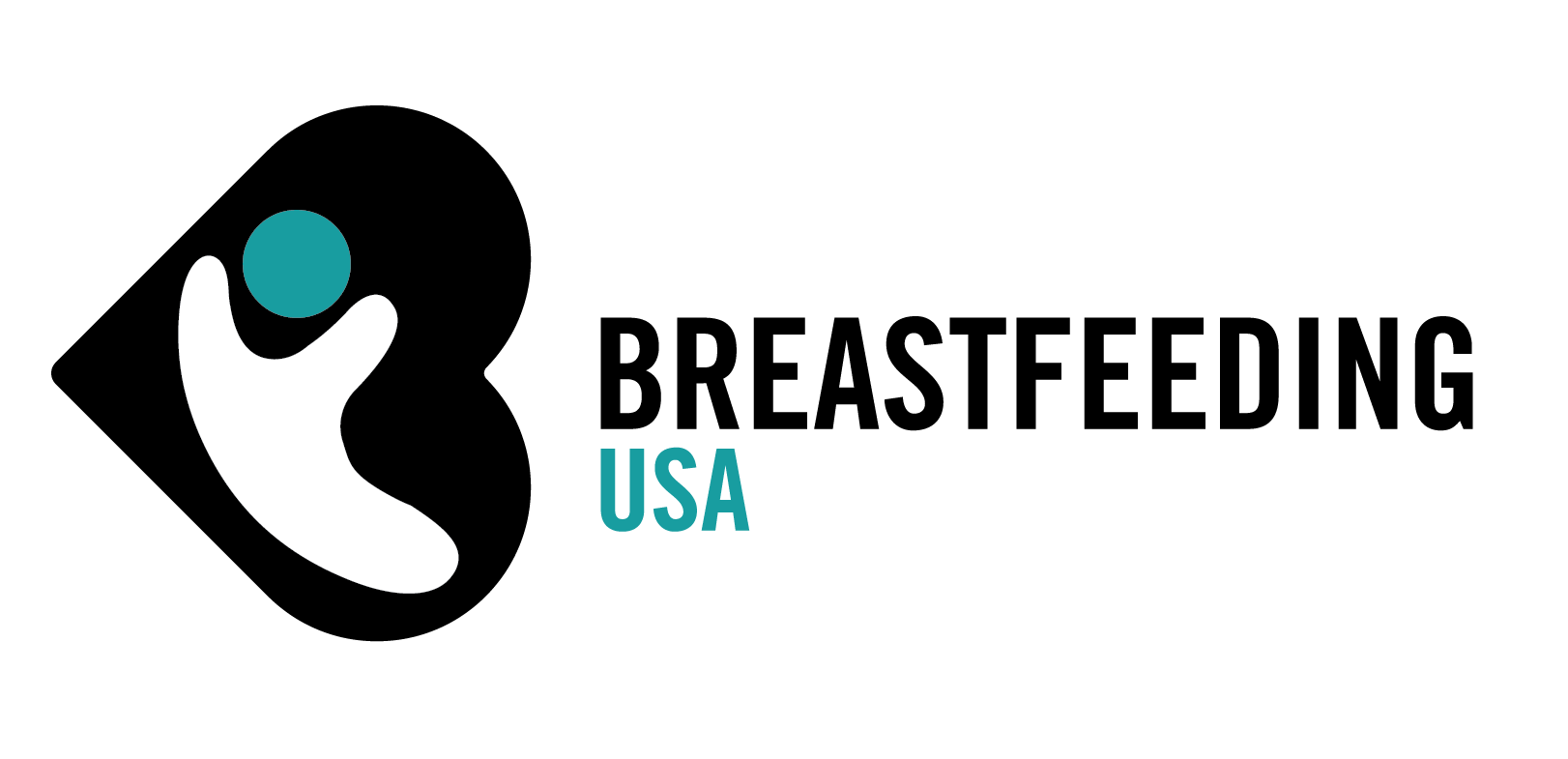By Denise Woltering

I had a pretty busy summer and was feeling quite tired out and uncomfortably pregnant when my water broke four and one-half weeks early. Off to the hospital my husband and I went. I wasn’t too concerned because my first child had been almost four weeks early, and everything had been fine. When our daughter, Evangeline was born, my husband and I couldn’t have been more delighted! She was 5 lbs 2 oz, rosy and healthy; now everything would fall into place like our first experience, and we would be discharged from the hospital in a day or so.
I immediately put Evangeline to my breast, and she started to suckle, but it just wasn’t that strong of a suckle. That morning, our pediatrician came in and suggested that we might have her evaluated for Down Syndrome, as she seemed a bit floppy. She seemed fine to us and because my husband is Asian, we thought that perhaps the doctor had confused her Asian look with the Down look. The neonatologist, who checked her out, did not seem concerned, and so we opted not to have her tested at that time. Evangeline continued to suckle, but she also slept a lot of the time and always needed to be awakened to eat. Again, my other early child had acted similarly. I did notice, however, that milk production seemed slow, and the nurse suggested that I pump my breasts. I had never pumped in my life, and this was my fourth birth-child. I agreed to give it a try because I was becoming a little concerned about not having that much milk yet.
Before you can be discharged from the hospital, nurses and doctors want to see that the baby is eating and maintaining adequate blood sugar levels. This, of course, is understandable, though it does put pressure on the breastfeeding parent and the baby to perform, so to speak. So the next 48 hours were devoted to pumping and trying to get the tiniest amount of milk into the baby. Within that short period, I became a timekeeper and fluid watcher, noting every amount pumped, every bottle fed, and every diaper changed. They kept pricking my little girl’s foot to test her blood sugar and bilirubin levels. It was pretty upsetting, but there was nothing else I could do except put my little girl to my breast at every opportunity.
Two advancements in child delivery that I have experienced since my first birth 11 years earlier were the encouragement from helpful and attentive nurses and the promotion of skin to skin contact between my baby and me. There was no whisking my little girl off to a nursery. Instead, there was a lot of warm, naked-baby nuzzling and sleeping on my or dad’s chest. I really can’t say enough about it.
After a few days, baby and I were discharged, but boy, already this was quite a different experience. We were going home with a cute, healthy, and sleepy baby who didn’t seem up to the task of nursing. We also toted a heavy, but very efficient, hospital-grade breast pump that became my good friend over the next few months. I was feeling slightly horrified; I constantly worried about bottle-feeding her and whether she would ever truly and exclusively nurse at my breast. I had heard about nipple confusion and was terrified. There was nothing I looked forward to more than that loving and exclusive bond that breastfeeding brings, and here I felt it was, perhaps, slipping away. Nonetheless, the primary goal was “feed the baby and help her grow.” If pumping 8 -10 times in a 24-hour period was what I needed to do, then so be it.
I found myself in a time cycle of pumping for about 15 to 20 minutes and feeding for about 45 minutes. This happened around the clock about every three hours or so. To say I was sleep deprived was no exaggeration. Every time, before giving Evangeline a bottle, I offered her my breast, and most of the time she would try to suckle a little bit. I slept when I could and continued to try to engage in as much skin-to-skin contact as possible. Sometimes during the day, I would wrap her little naked body close to my chest and put a big t-shirt over us so I could continue this stimulation.
When Evangeline was about eight days old, I really thought she was getting the hang of nursing. She had regained her birthweight and an ounce or two. I thought, “Ok, she’s got it now. I can chill out and just let her nurse a lot more and bottle-feed less.” This went on for about five days. I weighed her a few times; she really wasn’t gaining, but she was peeing and pooping. Then I pulled out my old baby books. I was looking at my oldest daughter’s information, and to my horror, I saw that in the first two weeks of life, she had gained almost 2 pounds! Evangeline had gained just a few ounces. This wasn’t right. For the first time, my pediatrician’s suggestion that my daughter might have Down Syndrome came ringing back into my ears. Why was she so sleepy? Why was it a battle to get 30 cc of my milk into her little body?
I naturally started to feel intense stress about her feeding again; I doubled my efforts with the pump and became vigilant anew on keeping track of how much she took in. I also consulted several hospital lactation specialists and a Breastfeeding USA Counselor. The main information I took from those meetings was to keep working on it. Pump 8-10 times a day, both sides at the same time. This definitely increased my production. I froze the milk I did not use. I also continued to offer Evangeline the breast several times a day. I tried the nipple shield and that seemed to help her latch a bit better. I can say that I really felt guilty and, perhaps, even ashamed that I couldn’t get her to breastfeed. I, obviously, had put these feelings on myself and couldn’t shake feeling sorrow when I pulled out the bottle and started to feed my baby. One consultant eased my distress a little bit by saying that the baby just wasn’t ready yet to latch on so keep pumping and hang in there…don’t give up hope!
It took several days for me to get up the courage to say to my husband that we might consider having her tested for Down Syndrome. This just wasn’t the typical newborn experience, and there might be a reason for it. He felt that she was just young and weak and would come along once she reached her original due date. He did agree to go ahead with the testing, so off I went to have her blood drawn. A week or so later, I met with the pediatrician who informed me that Evangeline did, indeed, have Down Syndrome. By this point, I felt in my heart that was the case and so was not shocked. My husband and I went through a grieving process at this point which most parents experience. What worried me most was the fear that my baby would be sick, though she seemed healthy and, thankfully, had no indication of a heart defect, which often is a concern for an infant with Down Syndrome.
With this diagnosis, I began to search the internet for articles about breastfeeding a baby with Down Syndrome. How possible was it and were there any helpful ideas? Again, I saw lactation specialists and spoke to a La Leche League Leader. Everyone was very encouraging and reminded me that feeding the baby was the first priority. The greatest help came from my husband and a friend of mine with a beautiful daughter with Down Syndrome whom she had breastfed for two years. She followed up with me, sent me articles, and kept telling me to keep working on it as it was the best and healthiest gift I could give my child. I kept on pumping and offering Evangeline the breast.
There was a time when I weighed her every day, nervous about the gain. It was slow, but it happened. I was nervous because doctors kept telling me that she needed to gain half an ounce to an ounce each day. They were concerned that lengthy feeds could burn more calories than were consumed. Consequently, we lived through two very intense months.
As Evangeline was going on two months, then three months of age, I thought there was no way she would ever breastfeed exclusively. Though this saddened me, I felt glad that she would, at least, suckle and that we would bond in that way. I decided that I would pump for a year, no matter the inconvenience, and give her my best. I did notice, however, that she had greater success nursing at night than during the day, as if instinct kicked in. So, there would be no baby sleeping through the night at 10 weeks in our house! I did try using an at-breast supplementer several times. I know some people have great success with it, but it never worked for me.
I have four other children and homeschool them. We worked our schedule around pumping, nursing, and feeding times. We went out to activities and always made sure a smaller pump and bottle of milk were in the car. At this point, I pumped twice at night for about 20 minutes and about four times during the day.
I’ll never forget that Tuesday before Thanksgiving when I visited one last lactation specialist. Evangeline was four months old. We weighed her and then I sat down in a quiet room and nursed. The specialist said, “You know, I really think she is getting it. Her mouth motions look great!” After she finished, we weighed her, and Evangeline had taken in an ounce on her own! This was a moment of real elation on my part. I finally had proof that we were making progress.
After that, Evangeline took more on her own every day. I continued to pump until January, gradually decreasing the times per day. At six months old, Evangeline was exclusively breastfeeding! She is now a happy, 18-month-old girl and is still nursing with enthusiasm. She has never had to be hospitalized and has never been seriously ill. I am grateful for that and believe that my milk has played a role in her health.
My advice to anyone who wants to nurse a baby with Down Syndrome is that you can do it, even if the infant seems so weak at first. Keep trying! A good rental-grade breast pump will make a big difference when double pumping. Keep offering to nurse, even if you also have to supplement using a bottle or other feeding methods. You won’t regret it.
Further reading
What’s That on Your Chest? All About At-Breast Supplementer
Baby-Led Latch: How to Awaken Your Baby’s Breastfeeding Instincts
Diaper Output and Milk Intake in the Early Weeks
Breastfeeding your baby with Down syndrome
Down Syndrome and Breastfeeding (Resources)
Denise Woltering lives on 25 acres in Virginia with her husband and 4 biological and 2 adopted children. She was a teacher for 10 years, but is now a homeschool mom. This article is also available in “Breastfeeding Today.”
© Breastfeeding USA 2016, all rights are reserved.
